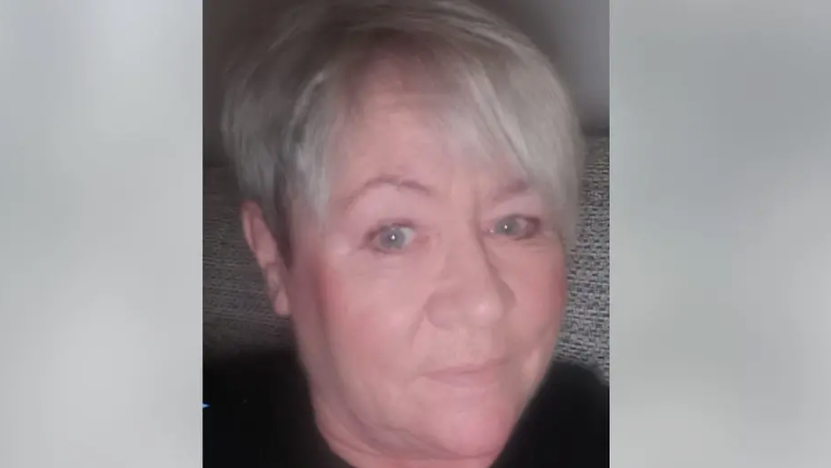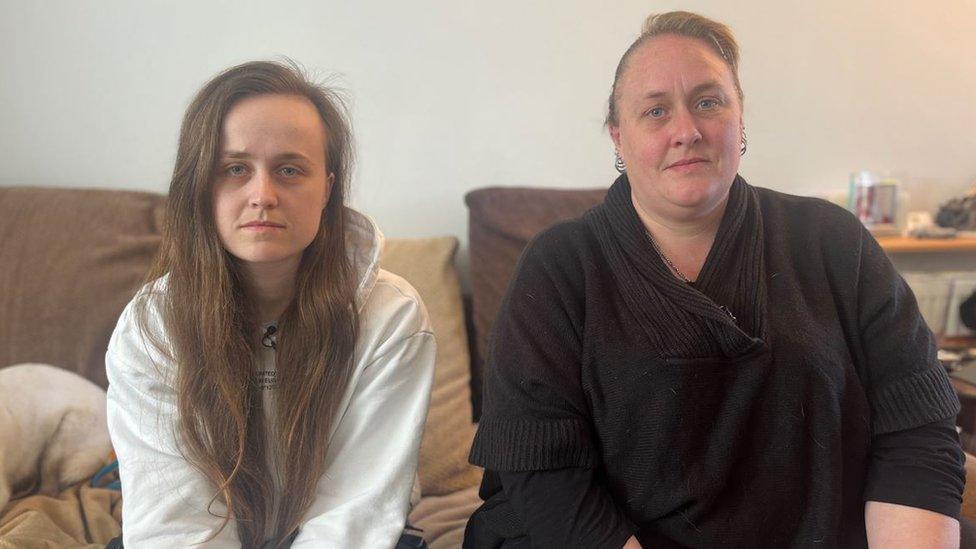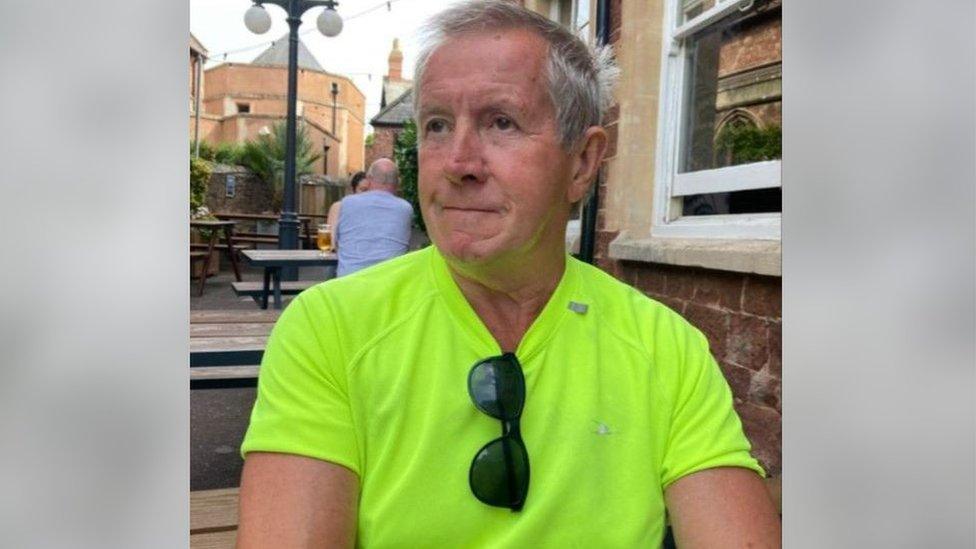'Multiple police failings' in murder investigation

Kelly Faiers, 61, from Weston-super-Mare was found "critically ill" before dying in Minehead
- Published
A police force provided an "unacceptable" level of service to the family of a woman thought to have been killed by her sex offender partner, a watchdog says.
Two years ago, officers spoke to Richard Scatchard after Kelly Faiers, 61, died at his home. The 70-year-old, who had previously been convicted of sexual offences in which he administered drugs to victims, disappeared the next day and was found dead months later.
The Independent Office for Police Conduct (IOPC) has now upheld three of Ms Faiers' family's complaints - including the fact they only found out details of Scatchard's criminal past through their own online searches.
Avon and Somerset said it had apologised to the family.
It added that the IOPC's concerns were "being closely reviewed and analysed" to consider what improvements to make.
Four of the family's seven complaints to the IOPC were not upheld. The watchdog also ruled there was no organisational learning the force needed to implement.
Ms Faiers' family told BBC News the IOPC report had not given them closure, and added they had lost faith in the justice system.
Scatchard initially called the ambulance service on 15 October 2023 after Ms Faiers, who was from Weston-super-Mare, fell seriously ill.
Emergency services attended Scatchard's home in Minehead, Somerset, and Ms Faiers was pronounced dead by paramedics.

Scatchard was found dead in a caravan site months after Ms Faiers' death
When police officers questioned Scatchard, they raised concerns about his behaviour and considered arresting him. However, the criminal investigation department told them not to arrest him, and said Ms Faiers' death was to be treated as non-suspicious.
The next day, a murder investigation was launched, but Scatchard had disappeared when officers returned to his home.
The IOPC ruled this "service provided to the family was unacceptable".
Two further upheld complaints from the family centred on officers providing an unacceptable level of service related to failings in communications.
Ms Faiers' family were not told for nine days that Scatchard had been at the property at the time of Ms Faiers' death. It also took 48 hours for the family to be informed detectives were investigating her death as suspicious.
'Should have done better'
Scatchard's name was later released to media before the family were notified of either his full name or his offending history.
The family previously told BBC News they were "shocked and upset" this information had not been previously shared with them by officers.
Responding to the IOPC report, a police spokesperson said: "We recognise the additional distress experienced by Ms Faiers' family at learning of Scatchard's criminal record through an online search and by not disclosing sooner he was at the address and spoken to by officers when police initially attended.
"This was information that should have been privately communicated to Ms Faiers' family in a sensitive way and at an appropriate time."
IOPC director Derrick Campbell said the force "could and should have done better".
"We found the service provided by the force was unacceptable regarding three individual officers, whose actions and decisions fell below expectations," he said.
Mr Campbell added there was no evidence found "to indicate they may have breached police standards of professional behaviour".
He said officers "should reflect and learn from the failings we identified" and would take on a process of reflection.
Related topics
- Published10 April 2024

- Published6 April 2024

- Published8 January 2024
